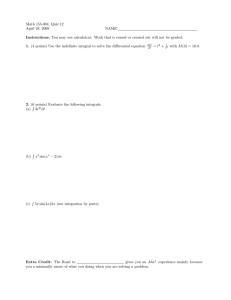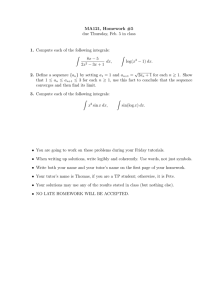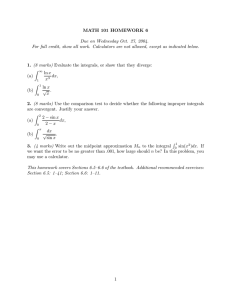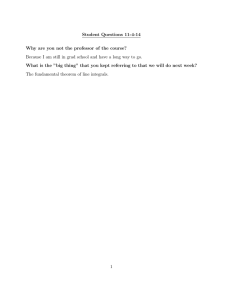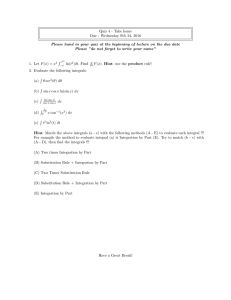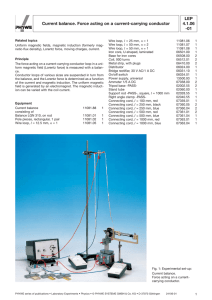Problem 5.41 Determine the mutual inductance between the circular
advertisement
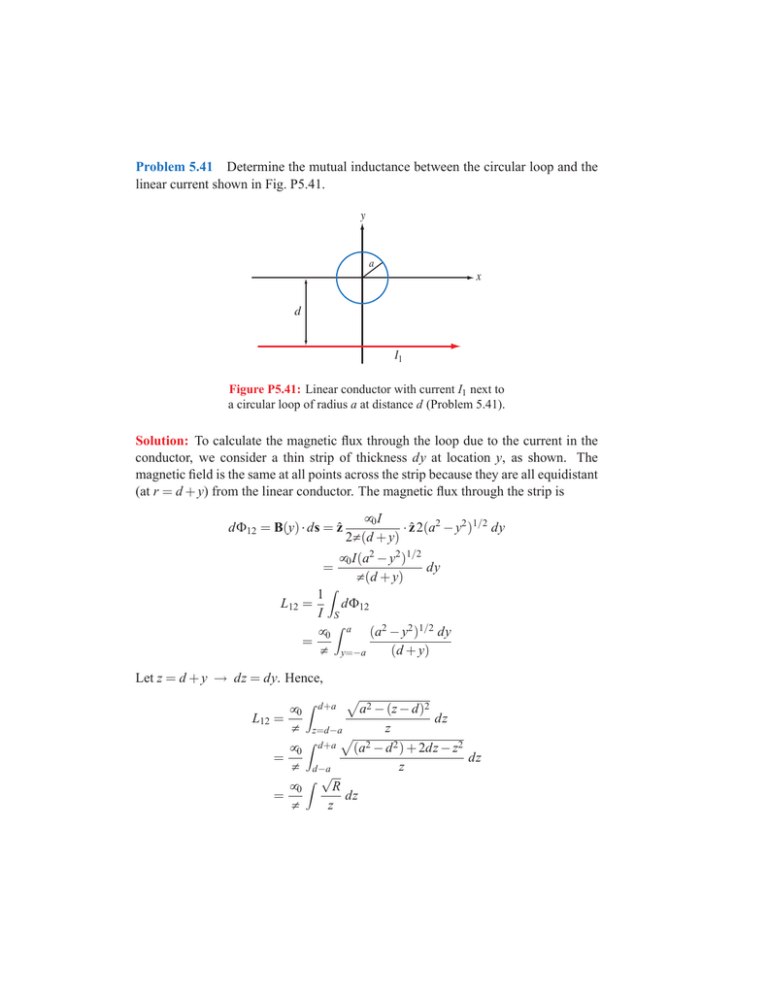
Problem 5.41 Determine the mutual inductance between the circular loop and the linear current shown in Fig. P5.41. y a x d I1 Figure P5.41: Linear conductor with current I1 next to a circular loop of radius a at distance d (Problem 5.41). Solution: To calculate the magnetic flux through the loop due to the current in the conductor, we consider a thin strip of thickness dy at location y, as shown. The magnetic field is the same at all points across the strip because they are all equidistant (at r = d + y) from the linear conductor. The magnetic flux through the strip is dΦ12 = B(y) · ds = ẑ = µ0 I · ẑ 2(a2 − y2 )1/2 dy 2π (d + y) µ0 I(a2 − y2 )1/2 dy π (d + y) 1 L12 = dΦ12 I S Z µ0 a (a2 − y2 )1/2 dy = π y=−a (d + y) Z Let z = d + y → dz = dy. Hence, p Z a2 − (z − d)2 µ0 d+a L12 = dz π z=d−a z p Z µ0 d+a (a2 − d 2 ) + 2dz − z2 dz = π d−a z Z √ µ0 R dz = π z where R = a0 + b0 z + c0 z2 and a0 = a2 − d 2 b0 = 2d c0 = −1 ∆ = 4a0 c0 − b20 = −4a2 < 0 From Gradshteyn and Ryzhik, Table of Integrals, Series, and Products (Academic Press, 1980, p. 84), we have Z √ Z Z √ b0 dz dz R √ √ . + dz = R + a0 z z z R R For √ ¯¯d+a R¯ z=d−a = ¯d+a p ¯ a2 − d 2 + 2dz − z2 ¯ z=d−a = 0 − 0 = 0. dz √ , several solutions exist depending on the sign of a0 and ∆. z R For this problem, ∆ < 0, also let a0 < 0 (i.e., d > a). Using the table of integrals, d+a Z dz 2a0 + b0 z 1 √ = a0 √ sin−1 q a0 −a0 z R z b2 − 4a c For Z 0 0 0 z=d−a ¶¸d+a · µ 2 2 p −1 a − d + dz 2 2 = − d − a sin az z=d−a p = −π d 2 − a2 . dz √ , different solutions exist depending on the sign of c0 and ∆. R In this problem, ∆ < 0 and c0 < 0. From the table of integrals, ¸ · Z 2c0 z + b0 d+a b b0 dz −1 √ = 0 √ sin−1 √ z 2 −c0 −∆ z=d−a R µ · ¶¸d+a d −z = −d sin−1 = π d. a z=d−a For Z Thus i p µ0 h · π d − π d 2 − a2 πh i p = µ0 d − d 2 − a2 . L12 =
